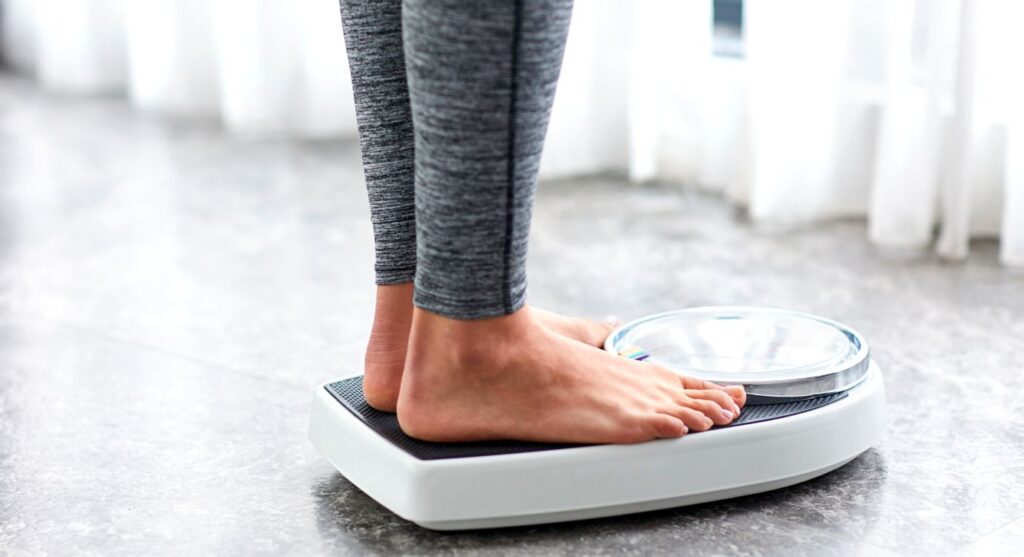Magnesium is a powerhouse mineral. It is present and necessary for more than 300 important bodily functions and biochemical reactions.
But is it particularly important for women? What does magnesium do for the female body? And how can women use magnesium to ease health conditions, both physical and mental?
Read on to find out more about magnesium benefits for women, including:
- How magnesium supports the female body
- Important benefits of magnesium for women
- How much magnesium should women use
In this guide:
What does magnesium do for the female body?
For all bodies, magnesium is a crucial element in the synthesization of DNA, RNA and glutathione. It’s also important for keeping your bones and heart healthy.
But what about women’s health is magnesium particularly good for?
Let’s rewind a second. Women’s bodies are put under stress throughout both teenage and adult lives. That’s the case regardless of whether women choose to have children.
There’s the menopause and PMS, and the regularity and commonality of little-understood and debilitating conditions, such as polycystic ovary syndrome (PCOS) and endometriosis.
Plus, there’s a higher likelihood of women suffering from stress-related conditions – one study found women are twice as likely to suffer from severe stress and anxiety as men.
Indeed, a literature review into the effect of magnesium supplementation on women’s health and well-being summarised that:
“Magnesium use in women, both in terms of prevention and treatment, is extended to many health issues from PCOS to pre-menstrual syndrome, from pregnancy to menopause and beyond.”
So, supplements such as magnesium, which may help with everything from stress management to regulating blood pressure, can be extra helpful to ease some of that strain and promote wellness and good health in women.
10% off on your first order
Complete this one-minute quiz and find the right products for you.
Magnesium benefits for women
1. Managing PMS
PMS refers to the symptoms women can experience in the weeks before their period. Premenstrual syndrome can impact women differently and in a variety of ways.
Common PMS symptoms include mood swings, tiredness, feeling anxious or upset, bloating, headaches and skin breakouts.
A huge proportion of women – around 80–90% globally – suffer from PMS. Between 3–8% experience severe PMS symptoms, making the disorder ‘one of the most disabling during women’s fertile life.’
So can magnesium ease some of these PMS symptoms and help women who suffer badly from PMS?
One study found that oral magnesium supplementation could effectively treat premenstrual symptoms related to mood changes. Another indicated magnesium could help prevent period pain in some people by relaxing muscles in the uterus.
Moreover, a recent literature review found magnesium is an evidence-based treatment for PMS. While it’s still not entirely confirmed exactly how magnesium can help ease PMS symptoms, some researchers propose it may work by calming the nervous system and “normalising the actions of different hormones (mainly progesterone) on the central nervous system”.
Read more: Magnesium for PMS
2. Manage stress
Stress, while perceived often as being a psychological condition or ‘feeling’, can put severe strain on the body. Common symptoms associated with stress in women include headaches, problems sleeping, skin problems, eating changes, substance misuse, lack of energy, lack of sex drive, and back and neck pain – to name a few!
Magnesium and stress are highly associated. The relationship between stress and magnesium is often referred to as a ‘vicious circle’ – both magnesium deficiency and stress can worsen each other’s effects.
As evidenced by a study published in 2020, stress can lead to the body having difficulty retaining magnesium, thus causing a deficiency. In turn, an existing deficiency could heighten the body’s susceptibility to stress.
Why do magnesium and stress have such a close relationship? Well, magnesium is thought to block activity in the brain of more stimulating neurotransmitters and binds instead to more calming receptors.
Magnesium is also thought to regulate the release of stress hormones, such as cortisol. With a clear stress regulatory function, magnesium works to calm the body’s nervous system and so can be an effective way to help women manage stress.


3. Support health during the menopause
The magnesium we store naturally in our bodies declines during menopause, so it’s particularly important for women to ensure they do not become magnesium deficient – or worsen an existing deficiency – during this time.
The science also supports the role of magnesium in the menopause transition.
One study tracked the effectiveness of magnesium in reducing hot flushes experienced by breast cancer patients. It found that those consuming oral magnesium experienced more than a 50% reduction in symptoms when compared to a placebo group.
Magnesium can also help with maintaining bone strength during menopause. Women can lose up to 10% of bone density during this transitional period, making it all the more important to supplement with magnesium and regulate the body’s calcium flow.
Read more: Magnesium for menopause
4. Relieve migraines
Research shows that women are two to three times more likely than men to have migraines. So can magnesium help? So far, evidence supports the use of magnesium, not in treating migraines but in preventing them all together.
One study found that people who took magnesium supplements had migraines on 43% fewer days than others given the empty placebo pills. Further, research suggests that people who regularly suffer from migraines tend to have lower levels of magnesium than those who don’t.
Read more: Magnesium for migraines
5. Supporting health in pregnancy
Magnesium is an essential mineral at all times, but even more so during pregnancy. Magnesium deficiency in pregnancy is common. One study found that many women, in particular those from disadvantaged backgrounds, intake less magnesium than required when pregnant.
One randomised control trial, conducted in 2017, found that women who supplemented magnesium while pregnant were less likely to have pregnancy complications, including low birthweight and preeclampsia. The study also found that supplementing magnesium may reduce the risk of stillbirth.
Read more: Magnesium in pregnancy


6. Support healthy blood sugar levels
Low blood sugar can manifest as sweating, shaking, anxiety, dizziness and confusion, among other symptoms. It can lead to passing out or fainting, or even seizures. To summarise – low blood sugar (otherwise known as hypoglycemia) can be dangerous if left untreated.
Evidence points to magnesium playing a key role in glucose metabolism and, therefore, in the maintenance of healthy blood sugar levels.
One study found that magnesium intake, specifically in women, resulted in healthier blood sugar levels. More broadly speaking, a meta-analysis found that participants who increased their magnesium supplementation by 100mg per day had healthier blood sugar levels.
7. Regulating blood pressure and supporting cardiovascular health
Maintaining magnesium levels is key for heart health in women.
There’s an established relationship between cardiac problems and low magnesium. One study showed 53% of patients in an intensive cardiac care unit had mononuclear cell magnesium content “below the lowest normal control”.
Other studies have shown that low serum magnesium is associated with inflammation and disturbances in the regulation of vascular tone and endothelial function, both of which are mechanisms capable of worsening coronary heart disease.
As such, low serum magnesium levels have been implicated in cardiovascular mortality. Adversely, maintaining healthy magnesium levels offers some form of protection and support for cardiovascular health in both women and men.


How much magnesium do women need?
According to the NHS website, nobody should take more than 400mg of magnesium as a supplement per day. Taking below this amount is ‘unlikely to cause harm’.
Do note that magnesium derived from food sources (such as nuts and leafy greens) doesn’t count here – you don’t need to be estimating how much spinach you eat in a day and factor that in.
But aside from maximum doses and safety guidelines: how much magnesium do women really need?
Referring back to NHS guidelines, women between the ages of 19 and 64 need around 270mg per day. This is a base guideline. Factors such as weight and age, as well as the extent of a magnesium deficiency, may also be taken into consideration – older people tend to need more magnesium than young people, for instance.
To work out the best magnesium-dose for you, always speak with a medical professional who knows your individual requirements.
Frequently asked questions:
Should women take magnesium daily?
Women who have a magnesium deficiency should take magnesium daily to support their health and wellness. The recommended dose for women is around 270mg per day.
Is magnesium good for female hormones?
Yes, magnesium is a great supplement for women going through hormonal changes, such as menopause, as well as helping relieve symptoms of PMS.
The takeaway
Magnesium is a vital mineral and offers important benefits for everyone – men, women, old, and young.
But magnesium can be particularly helpful for women throughout the course of their lives – it can help with the management of PMS symptoms, reduce migraines, and even support women during the transitional years of menopause and beyond.
















































































































































